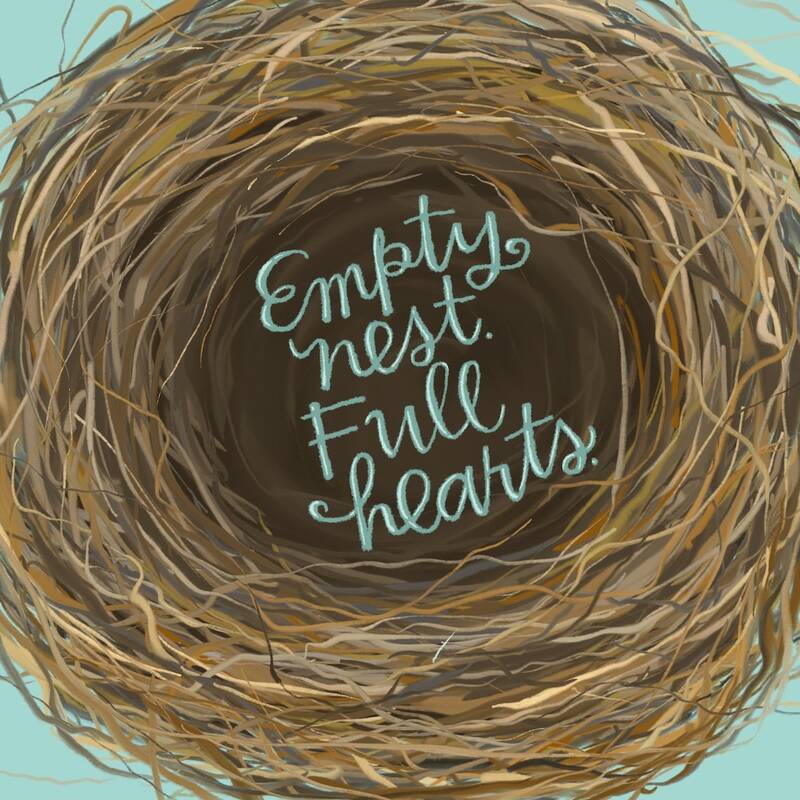|
Jaeger Counseling Blog
A Marriage & Pre-marital Counseling Individual & Family Therapy Resource |
|
The empty nest stage of life is like discovering a hidden treasure map in your kids' old toy box. You never knew it was there, but now that you've found it, the adventure begins!
As your children fly the coop and leave you with an eerily quiet house, it's time to channel your inner explorer and dive headfirst into the uncharted territory of the empty nest stage. Here are some tips for navigating this uncharted territory: 1. Embrace the Silence: No more shouting matches over who left the milk out or who forgot to do their homework. Enjoy the peace and quiet, and maybe even do a victory dance in the now kid-free living room. 2. Rediscover Yourself: Remember those hobbies you abandoned when the kids took over your life? Dust off your old guitar, dig out your paintbrushes, or finally start that salsa dancing class you've always wanted to try. 3. Focus on Personal Growth: Who says you can't teach an old dog new tricks? Take up skydiving, learn a new language, or master the art of baking the perfect soufflé. The sky's the limit! 4. Strengthen Relationships: Reconnect with your partner and rediscover the joys of being a twosome again. Plan a romantic getaway, have a candlelit dinner, or just enjoy a quiet evening binge-watching your favorite TV show together. 5. Prioritize Self-Care: Treat yourself to a spa day, indulge in a bubble bath, or simply lounge around in your pajamas all day. Self-care is not just a luxury—it's a necessity! 6. Set Goals: Whether it's climbing Mount Everest, writing a novel, or simply mastering the art of growing the perfect tomato plant, set goals that excite and inspire you. Who knows what amazing adventures lie ahead? 7. Stay Positive: Embrace this new chapter with open arms and a big smile. The best is yet to come, and the possibilities are endless! So, grab your compass, pack your sense of humor, and embark on this wild and wacky journey through the empty nest stage of life. Who knows what escapades and surprising discoveries await you? Let the adventure begin! “I don’t like the term empty nesters. I prefer ‘parents of free range adults’.” ~Robin Fox
0 Comments
Self-awareness is a crucial aspect of personal growth and development. It involves the ability to recognize and understand one's own thoughts, emotions, and behaviors. With self-awareness, individuals can better understand their strengths and weaknesses, make more informed decisions, and improve their relationships with others.
Authors Kay and Milan Yerkovich emphasize the importance of self-awareness in their book "How We Love: Discover Your Love Style, Enhance Your Marriage." They highlight how self-awareness plays a significant role in understanding our patterns of behavior and communication in relationships. By being aware of our own emotions and triggers, we can communicate more effectively and build healthier connections with those around us. Self-awareness also involves recognizing how our past experiences and beliefs shape our present actions. By reflecting on our upbringing, values, and life experiences, we can gain insight into why we react in certain ways and work towards making positive changes. By practicing self-reflection and mindfulness, we can enhance our emotional intelligence, improve our communication skills, and cultivate a greater sense of empathy towards others. In the words of author Nate Larkin, "Community is the one place our brokenness can be seen and known, not as a source of shame, but as a wellspring of growth." These profound words encapsulate the essence of why community is so vital in our lives.
Community provides a sense of belonging, support, and connection that is essential for our well-being. It is a place where we can be our authentic selves, flaws and all, and still be accepted and embraced for who we are. In a world that often emphasizes perfection and masks our vulnerabilities, community is a sanctuary where our imperfections are not only accepted but valued as a source of growth and learning. Moreover, community fosters a sense of purpose and meaning. It gives us a platform to contribute, make a difference, and leave a positive impact on the world around us. Through community involvement, we can cultivate relationships, build bridges, and create a sense of unity that transcends boundaries and brings people together in a spirit of togetherness. In essence, community is not just a gathering of individuals; it is a tapestry of interconnected lives woven together with threads of compassion, empathy, and mutual respect. As Nate Larkin eloquently puts it, community is where our brokenness finds healing, our vulnerabilities find strength, and our shared humanity finds purpose. Let us cherish and nurture the communities we are part of, for they are the fertile soil in which the seeds of growth, connection, and transformation thrive. “As a Man thinks, so he is” Proverbs 23:7
In our journey through life, we often internalize messages and beliefs about ourselves that shape our self-perception and influence our actions. These core messages, formed through experiences and interactions, can be either positive or negative. When these core messages are unhealthy or damaging, they can hinder our growth, lead to self-doubt, and impact our relationships. Mending unhealthy core messages is a crucial step towards healing and personal transformation. It involves recognizing and challenging the negative beliefs we hold about ourselves, and replacing them with positive, affirming truths. This process requires self-reflection, self-compassion, and a willingness to confront the deep-seated wounds that have shaped our self-image. One of the key aspects of mending unhealthy core messages is to seek support and guidance from others. Whether through therapy, counseling, or trusted friends and family members, having a safe space to explore and process these negative beliefs can be immensely beneficial. It is through vulnerability and openness that we can begin to unravel the layers of self-doubt and self-criticism that have held us back. Additionally, practicing self-care and self-compassion is essential in the journey towards mending unhealthy core messages. Taking time to nurture ourselves, engage in activities that bring us joy, and practice self-kindness can help us cultivate a more positive self-image and counteract the negative beliefs we hold about ourselves. Ultimately, mending unhealthy core messages is a process of self-discovery and self-acceptance. It is about reclaiming our worth, embracing our strengths, and letting go of the limiting beliefs that no longer serve us. Through introspection and support, we can mend the broken pieces of our self-perception and move towards a place of wholeness and healing. |
Norman Jaeger
|




 RSS Feed
RSS Feed